United Arab Emirates opens embassy in Israel
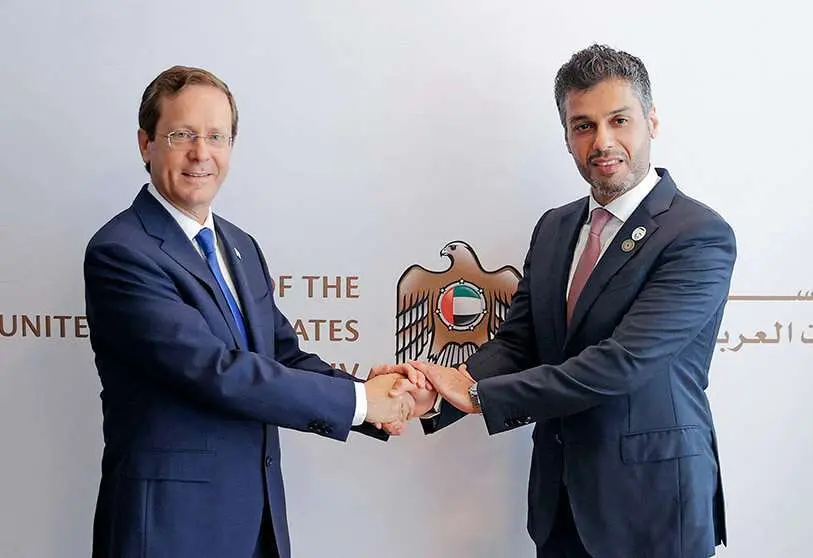
Almost a year after the normalisation of relations between Israel and the United Arab Emirates (UAE), the Gulf state has finally opened its embassy in Tel Aviv, becoming the first Persian Gulf state as well as the third Arab country to open an embassy on Israeli soil.
The UAE and Israel signed in September 2020 the famous Abraham Accords brokered by the previous US administration of Donald Trump. These agreements entailed the normalisation of relations between four Arab countries and the Hebrew state, including: United Arab Emirates, Sudan, Bahrain and the latest to join was Morocco. The signing of these pacts was widely rejected by the Palestinian population, which called it a "betrayal".
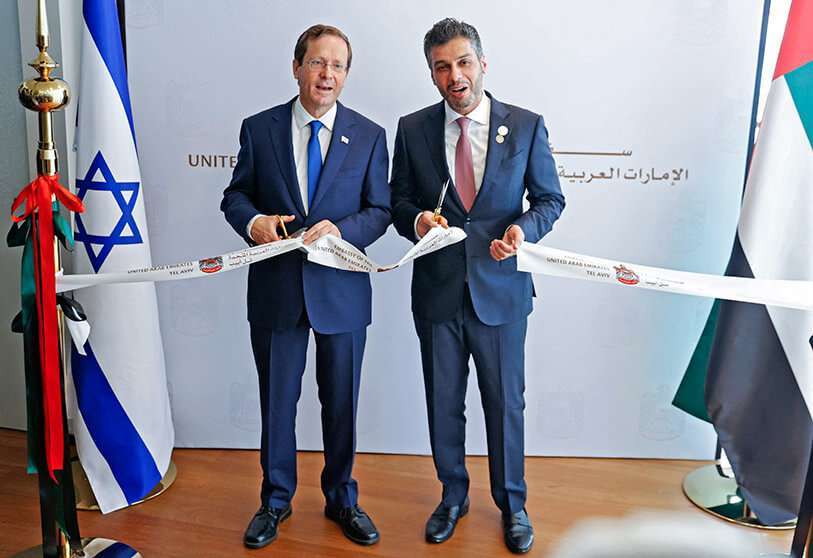
The Abraham Accords broke with the historic consensus that any normalisation agreement with Israel had to involve the establishment of two states with East Jerusalem as the Palestinian capital, as well as a return to the 1967 borders. But the UAE's enmity towards Iran outweighed its commitment to the Palestinians and it agreed to normalise relations with Israel, the Islamic Republic's main rival in the region.
Relations between the UAE and Israel have been largely economic in nature. Since the normalisation agreement was signed at the White House, the two countries have signed extensive trade and cooperation agreements. Israeli Foreign Minister Yair Lapid has said that bilateral trade since normalisation exceeds $675 million and that more deals are expected. That is why the UAE Embassy in Israel is located in the Tel Aviv Stock Exchange building is not a random location but underlines the strong economic character of the relationship.
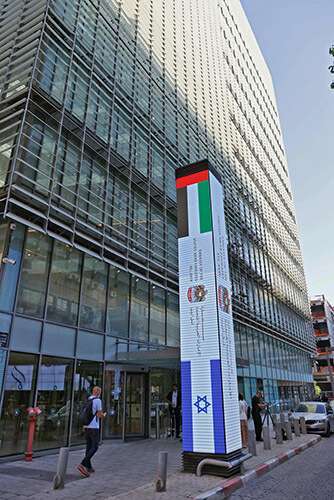
The opening of the UAE Embassy in Israel comes just two weeks after Israeli Foreign Minister Yair Lapid's visit to the Gulf kingdom where he inaugurated the country's embassy in Abu Dhabi and consulate in Dubai. Lapid was unable to attend the inauguration ceremony of the UAE Embassy in Tel Aviv as he is in quarantine due to close contact with a COVID-19 positive, but the event was attended by the new President of Israel, Isaac Herzog, and the Emirati Ambassador to Israel, Mohamed al Khaja. The UAE ambassador officially presented his credentials in early March, but the official inauguration has only taken place now.
"It is a great honour to open the Embassy here. Ten months ago our two countries signed the Abraham Accords with a vision of dignity, prosperity and peace for the two peoples," said Khaja, adding that "this is just the beginning. Both countries are innovative nations and we will take advantage of these new approaches for the prosperity of the countries". For his part, Herzog said that "seeing the Emirati flag in the sky over Tel Aviv would have seemed like a distant dream. Today it is a reality", and he underlined his hope for further normalisation agreements with other Arab nations.
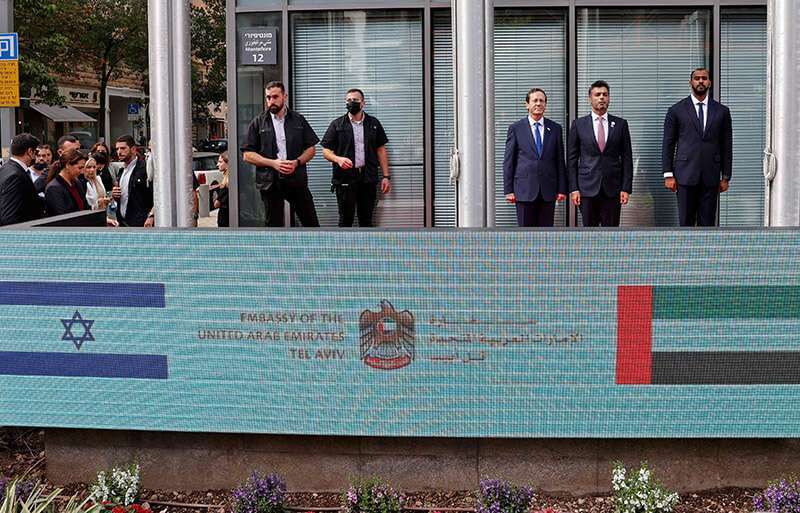
The Emirati ambassador explained that the UAE legation "is not just a centre for diplomats, but a base for continuing our new partnership", and stressed that this marks "a new paradigm for peace and a model for a new collaborative approach to conflict resolution". The two leaders also emphasised the economic ties that have united the two countries since the signing of the Abraham Accords. "In the post-COVID world, those who innovate will be the leaders," said the ambassador. "The UAE and Israel are innovative nations that will harness innovation for the future of the people of the country and the region. The people of the region look forward to a new and prosperous Middle East".
The opening of the UAE Embassy in Israel marks another step in the normalisation of relations between the two countries since the signing of the Abraham Accords. The two countries have had indirect relations for years, but thanks to US mediation they have finally been able to formalise a relationship that has a clear economic purpose and a counterbalance to Iran's growing influence to the detriment of the Palestinian cause. There has been speculation that other Arab countries such as Saudi Arabia might be in talks with the Jewish state to establish diplomatic relations, but the new escalation of tension between Israel and Hamas has caused these negotiations to stall.
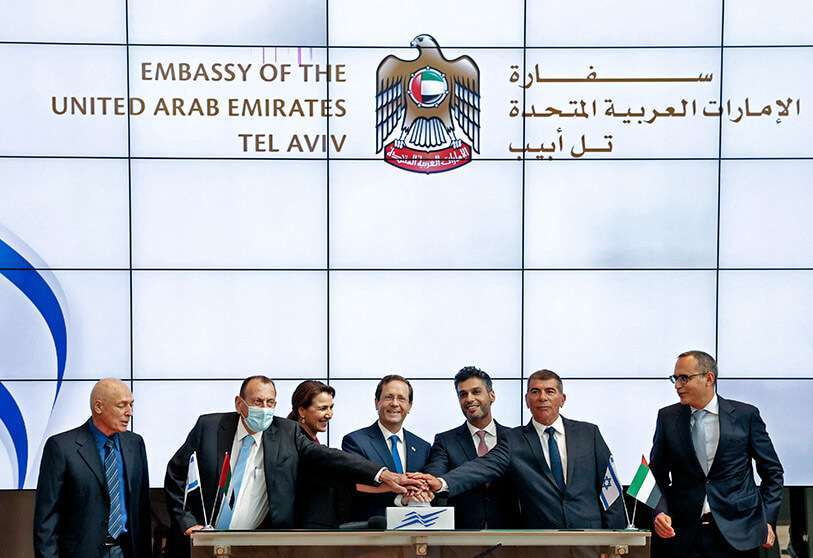
However, Israel's new government led by Naftali Bennet and Yair Lapid has repeatedly stressed its intention to reinforce the Abraham Accords and its aspiration to reach more agreements with other Arab nations. Despite differences with former prime minister Benjamin Netanyahu's government, Israel's current coalition government has embraced the Abraham Accords as its main foreign policy motif.








